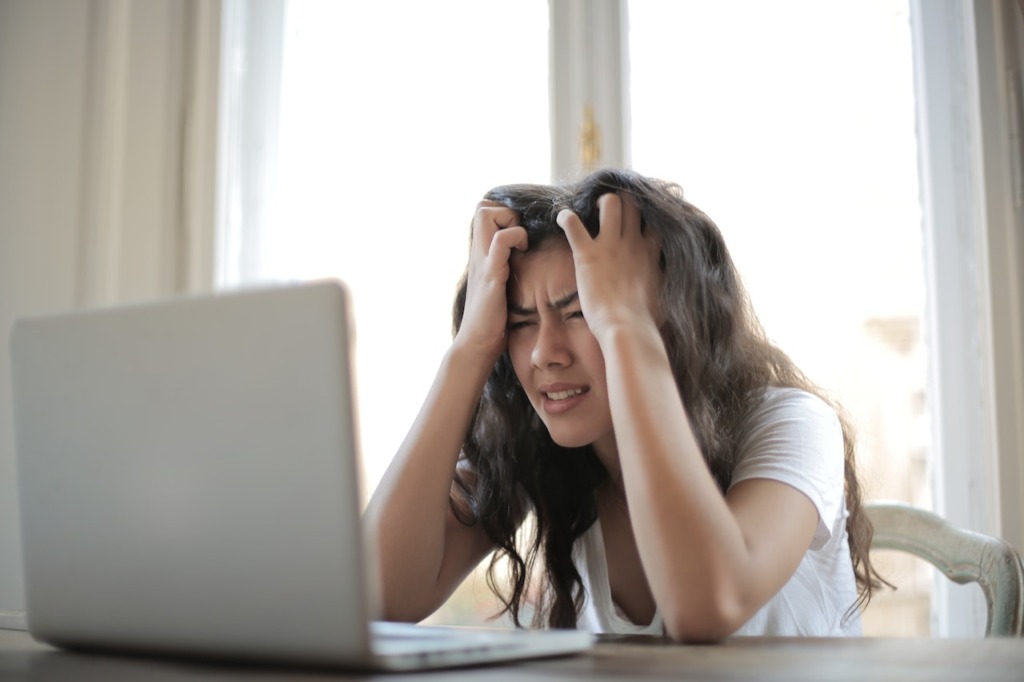Anxiety has become an all-too-typical companion for many people in today’s fast-paced and demanding environment. Anxiety, whether caused by work-related stress, personal issues, or even social pressures, may have a substantial influence on your well-being and quality of life.
To shed light on how to get rid of anxiety, we’ve asked seasoned therapist Dr. Sarah Thompson to offer her knowledge on how to properly conquer or manage anxiety. Let’s go into the conversation to find out what insights might help people reduce their anxiety and live better, more fulfilled lives.
Question 1: What Is Anxiety?
Answer: Anxiety is the body’s normal reaction to stress. It is a sensation of anxiety or concern that experts believe is created by a variety of variables, ranging from heredity to environment to brain chemistry.
Question 2: What Are Some Typical Signs Of Anxiety, And How Can People Recognize It?
Answer: Anxiety presents itself in a variety of ways, and the symptoms vary from person to person. Excessive anxiety, restlessness, irritability, trouble focusing, sleep difficulties, and bodily signs such as elevated heart rate, sweating, or shaking are all typical indications. It is crucial to highlight that while occasional sensations of worry are natural when these symptoms continue and severely interfere with everyday functioning, they may indicate an anxiety disorder.

Question 3: How Can Anxiety Affect A Person’s Life, And Why Is It So Important To Handle It?
Answer: Anxiety may have a significant influence on numerous aspects of one’s life. It can have an impact on relationships, job performance, academic pursuits, and general mental and physical health. Anxiety left untreated can lead to persistent stress, despair, and even physical health issues. As a result, it’s critical to handle anxiety quickly and efficiently to keep it from growing and interfering with a person’s ability to live a full life.
Question 4: What Are Some Typical Tactics Or Strategies That Therapists Use To Assist People in Control Or Get Rid Of Anxiety?
Answer: Therapists use a number of evidence-based strategies to help people manage their anxiety. CBT is a commonly utilized strategy that focuses on recognizing and confronting negative thinking patterns and replacing them with more positive and realistic ones. Deep breathing exercises, gradual muscular relaxation, and mindfulness meditation are also helpful anxiety-reduction treatments. Furthermore, therapists may investigate the underlying reasons for anxiety, treat underlying difficulties, and give advice on stress management and self-care.
Question 5: On How To Get Rid Of Anxiety – Are There Any Lifestyle Adjustments That People Might Do To Reduce Their Anxiety?
Answer: Absolutely! A variety of lifestyle adjustments can dramatically lower anxiety. Regular physical activity has been found to improve mental health by releasing endorphins and reducing stress. Maintaining a healthy diet, avoiding excessive coffee and alcohol, and getting enough sleep are all important. Engaging in enjoyable activities, such as hobbies, spending time with loved ones, or practicing relaxation methods, can give much-needed relief from anxiety. It’s crucial to remember that everyone is unique, so finding the optimal combination of lifestyle modifications may necessitate some trial and error and individualized tweaks.
Question 6: Is Medicine Required For Everyone Who Suffers From Anxiety, Or Are There Other Options?
Answer: Medication is not always necessary for everyone experiencing anxiety. Therapists assess the severity and impact of anxiety symptoms before determining the appropriate course of treatment. While medication can be beneficial for some individuals, there are also effective non-pharmacological treatments available. Psychotherapy, such as CBT, can often manage anxiety without the need for medication. However, it’s essential to consult with a qualified healthcare professional to determine the most suitable treatment plan based on individual circumstances.

Question 7: How Can People Develop Resilience In Order To Cope Better With Anxiety-Provoking Situations?
Answer: Building resilience is a critical component of anxiety management. Resilience is the capacity to recover from setbacks and obstacles, and it is crucial in dealing with anxiety-provoking events. Individuals can build resilience using the following strategies:
1. Creating a support network: Surrounding yourself with encouraging friends, family members, or a therapist may be a lifeline for emotional support. Sharing your thoughts and worries with trustworthy people can help reduce anxiety and give a new perspective on difficult situations.
2. Self-care: Self-care activities are critical for sustaining emotional well-being and resilience. This includes getting enough sleep, eating a good diet, exercising regularly, and incorporating relaxing techniques into your daily routine. Maintaining your physical and mental health improves your capacity to cope with stress and anxiety.
3. Mindfulness cultivation is the discipline of being completely present and aware of the current moment. Meditation and deep breathing exercises, for example, can help people acquire a deeper sense of self-awareness and reduce worry. Individuals can obtain a better perspective by focusing on the current moment and shifting their attention away from worrisome thoughts.
4. Setting realistic objectives: Having realistic and achievable goals will help you be more resilient. Break down huge goals into smaller, more doable tasks, and celebrate each step along the way. Individuals can lessen emotions of overwhelm and create confidence in their abilities to solve obstacles by setting reasonable expectations.
5. Developing effective problem-solving abilities: Effective problem-solving skills may greatly lessen and manage anxiety. Determine the exact issues or triggers that lead to anxiety and work toward realistic remedies. Break problems down into smaller components, brainstorm potential solutions, then put them into action systematically. Developing problem-solving abilities allows people to approach issues with a proactive and constructive perspective.
6. Positive self-talk: Negative self-talk can exacerbate anxiety and impede resilience. Negative ideas should be challenged and replaced with optimistic and realistic affirmations. Remind yourself of prior triumphs and strengths to build self-confidence and faith in your capacity to overcome obstacles.
7. Embracing flexibility and adaptation: Life is full of unknowns, and learning to embrace flexibility and adaptability may help you be more resilient. Recognize that change is unavoidable, and instead of opposing it, concentrate on acquiring the abilities and mentality necessary to adjust to new conditions. Accepting change can alleviate anxiety caused by the dread of the unknown and offer a sense of control over your life.
8. Seeking professional assistance: It is critical to recognize when professional assistance is required. A therapist or counselor who specializes in anxiety can offer helpful advice and assistance in creating resilience methods that are suited to individual requirements. They can help you identify triggers, investigate underlying issues, and provide evidence-based anxiety management approaches.

Conclusion
Anxiety may be a difficult and overwhelming feeling, but it does not have to take over your life. Individuals may successfully manage anxiety and recover control of their well-being by applying resilience-building practices.
Creating a support network, practicing self-care, cultivating mindfulness, setting realistic objectives, developing problem-solving skills, using positive self-talk, accepting flexibility, and getting professional assistance are all important steps toward combating and getting rid of anxiety.
Remember that resilience is a talent that can be learned through time rather than an intrinsic attribute. Individuals may manage anxiety-provoking circumstances with courage and confidence with devotion and determination, leading to a better and more fulfilled life.
I hope this article on how to get rid of anxiety has been super helpful in your journey to conquer or manage anxiety.



